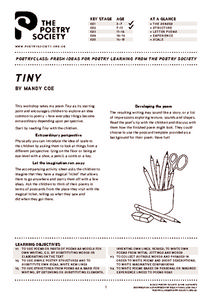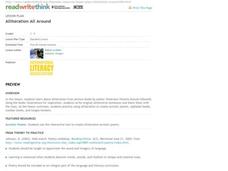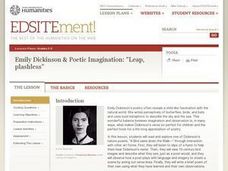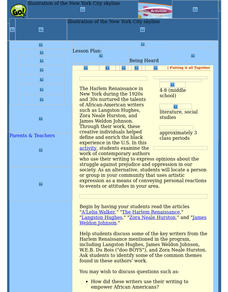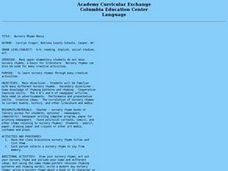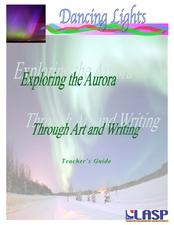Curated OER
Maniac Magee: Found Poem
Instruct your readers to scrounge through the pages of Maniac Magee in search for descriptive passages or words they may use to write poetry. As they look for meaningful, sensory descriptors in Jerry Spinelli's novel, readers connect to...
Curated OER
"Take my Advice": Poems with a Voice
Discuss the meaning of the phrase tone of voice with the class. They respond to a variety of scenarios where a particular tone would be prevalent. They then read "Mother to Son" without knowing the title and answer some questions about...
EngageNY
Writing, Critique, and Revising: Two-Voice Poems (Chapter 14: "Las Ucas/Grapes")
Continue work on the two-piece poem that compares two characters from Esperanza Rising. Give class members a few minutes to finish their drafts. After they have a complete product, model how to critique and edit the poems with one group....
EngageNY
Gathering Evidence and Drafting a Two-Voice Poem (Chapter 13: "Los Duraznos/Peaches")
Begin class with a short comprehension quiz and review and then move into a new genre: two-voice poems. The activity provides information about this type of poetry as well as a video example made by eighth graders that you can show your...
Curated OER
I Spy Poetry
Young scholars identify and interpret the rhythm and form of the I Spy poem.
They then integrate art, music, literature, technology, and writing with poetry. Students also write their own poem based on the picture they printed from the I...
EngageNY
Revisiting Big Metaphors and Themes: Revising and Beginning to Perform Two-Voice Poems
Now that your class has read all of Esperanza Rising, take the time to tackle big metaphors and themes. Pupils will participate in an activity called Chalk Talk, in which they circulate around the room in small groups and add comments to...
Curated OER
Poetic Elements Are Fun!
Engage your class in the elements of poetry with a series of lessons and activities. The plans cover simile, metaphor, personification, onomatopoeia, alliteration, and imagery. Learners come up their their own metaphors, identify poetic...
Poetry Society
Tiny by Mandy Coe
Introduce magic and imagination into your classroom with a poetry activity. Learners read the poem "Tiny" by Mandy Coe and use their magic tickets to visit any place they can think of! The final result is a poem describing where they...
ReadWriteThink
Alliteration All Around
Discover alliteration found in picture books by Pamela Duncan Edwards. Then, dive into a read aloud of Alligators All Around by Maurice Sendak. This practice sets the stage for budding poets to create their own acrostic poem, write an...
Roald Dahl
The Twits - Mrs Twit
"A person who has good thoughts cannot ever be ugly." The second lesson in an 11-part unit that accompanies The Twits by Roald Dahl uses poetry to encourage positive character traits. Mrs. Twit has ugly thoughts, but those thoughts can...
Curated OER
Oceans: A Sensory Haiku
Students create an ocean haiku. In this haiku lesson, students use their five senses to write a haiku. Students watch videos about the ocean, make a sensory portrait, and create a class haiku.
Curated OER
Digital Poetry Books
Students, after reviewing the writing process and assessing how to use a digital camera to take creative photos, create a Digital Poetry Book. They incorporate the use of Microsoft Photo Draw and Publisher for the creation of their...
Brigham Young University
Out of the Dust: Guided Imagery
A guided imagery exercise is a great way to get readers thinking about writing. As part of their study of Out of the Dust, Karen Hesse’s 1998 Newbery Medal winning verse novel, class members listen to a reading of one of the poems from...
Curated OER
Emily Dickinson & Poetic Imagination: "Leap, plashless"
Learners analyze the poems of Emily Dickinson and write their own nature poem. In this poetry analysis lesson, students read Dickinson poetry and analyze the use of imagery, sound, and metaphor. Learners write their own nature poem using...
Curated OER
Mountain Creation: A Drama Exploration
Students explore mountain formation. In this cross curriculum earth science and legend writing lesson plan, students listen to the poem "The Way to make Perfect Mountains" by Byrd Baylor and identify examples of vivid language used....
Curated OER
Out of the Dust: Biopoem
As part of their study of Out of the Dust, readers create a biopoem for one of the characters in Karen Hesse's 1998 Newbery Medal winning verse novel.
PBS
Being Heard
Examine the work of contemporary authors who use their writing to express opinions about the struggle against prejudice and oppression in our society. A short lesson on the Harlem Renaissance introduces learners to the most prominent...
Curated OER
Nursery Rhyme Mania
Students become familiar with many different nursery rhymes. They use nursery rhymes for a variety of creative activities including writing, singing, poetry and acting.
Curated OER
Dancing Lights
Students view artwork and navigate the Internet, and read books to learn about the Aurora Borealis. In this Northern Lights lesson, students complete a KWL and separate the facts from the myths about the Northern lights. Students answer...
Curated OER
Author Activities
In this author activity worksheet, students read a variety of books and discuss ideas that go along with the themes of the books. Students read Ruby Rogers books, Stink books, and also Troll Trouble books. After reading the books the...









